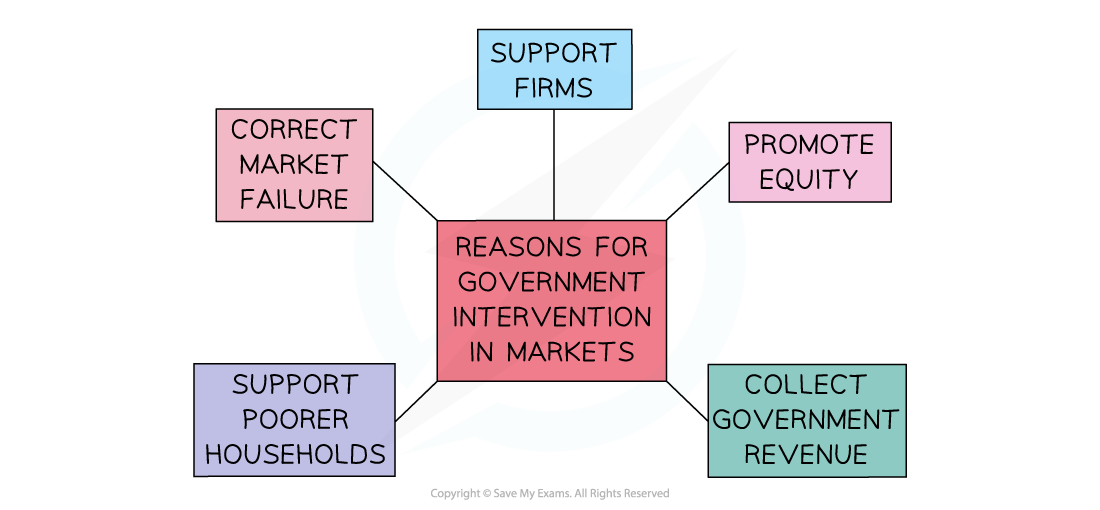Syllabus Edition
First teaching 2025
First exams 2027
The Government Budget (Cambridge (CIE) IGCSE Economics): Revision Note
Exam code: 0455 & 0987
Key government budget terms
Government budget
A statement of the government’s planned revenue (mainly from taxation) and expenditure (spending) over a specific period, usually one year
Shows the government’s fiscal policy intentions
Government budget deficit
Occurs when government expenditure exceeds government revenue in a given period
Indicates that the government must borrow to finance the shortfall
For example, UK public sector net borrowing in 2023/24 was around £120 billion
Government budget surplus
Occurs when government revenue exceeds government expenditure in a given period.
May be used to repay debt or saved for future spending
For example, Norway often runs budget surpluses due to high oil revenues
Fiscal policy
The use of government spending and taxation to influence the economy
It can be:
Expansionary – increasing spending or reducing taxes to stimulate growth
Contractionary – reducing spending or increasing taxes to slow inflation
Calculating the surplus or deficit
The budget balance is calculated using the following formula:
If budget balance > 0 → surplus
If budget balance < 0 → deficit
Worked Example
Government revenue = $800 billion
Government expenditure = $900 billion
Calculate the budget balance and determine if it in surplus or deficit
Step 1: Substitute the values into the formula
Step 2: Calculate the answer and state if it is a surplus or deficit
Reasons for government spending
Public expenditure (government spending) represents a significant portion of the total (aggregate) demand in many economies
Spending happens for the following reasons:
1. Provision of public goods
Goods that the market would not supply effectively due to the free rider problem
E.g. national defence, street lighting, flood barriers
2. Provision of merit goods
Goods/services that would be under-consumed without government intervention
E.g. education, healthcare, vaccination programmes
3. Welfare and social protection
Direct financial support to vulnerable groups to improve living standards
E.g. unemployment benefits, pensions, disability support
4. Infrastructure investment
Building and maintaining transport, energy, water and digital networks
Supports business activity and long-term productivity growth
5. Debt interest payments
Servicing existing government borrowing
Prevents default and maintains credibility in financial markets
6. Environmental protection projects
Funding for conservation, pollution control, and climate change adaptation
Reasons for taxation
Nearly every economy in the world is a mixed economy and has varying degrees of government intervention
One of the main forms of government intervention is taxation and there are many reasons why it is necessary

Correct market failure
In many markets there is a less than optimal allocation of resources from society's point of view
The government aims to subsidise merit goods and tax demerit goods to address this market failure
Earn government revenue
Governments need money to provide essential services and public and merit goods
Revenue to fund this is raised through taxation
Promote equity
The wealthy are taxed to provide funds that can be utilised in reducing the opportunity gap between the rich and poor
Support firms
In a global economy, governments choose to support key industries so as to help them remain competitive and taxation provides the funds to do this
Support poorer households
Poverty has multiple impacts on both the individual and the economy
Intervention seeks to redistribute income (tax the rich and give to the poor) so as to reduce the impact of poverty

Unlock more, it's free!
Was this revision note helpful?
